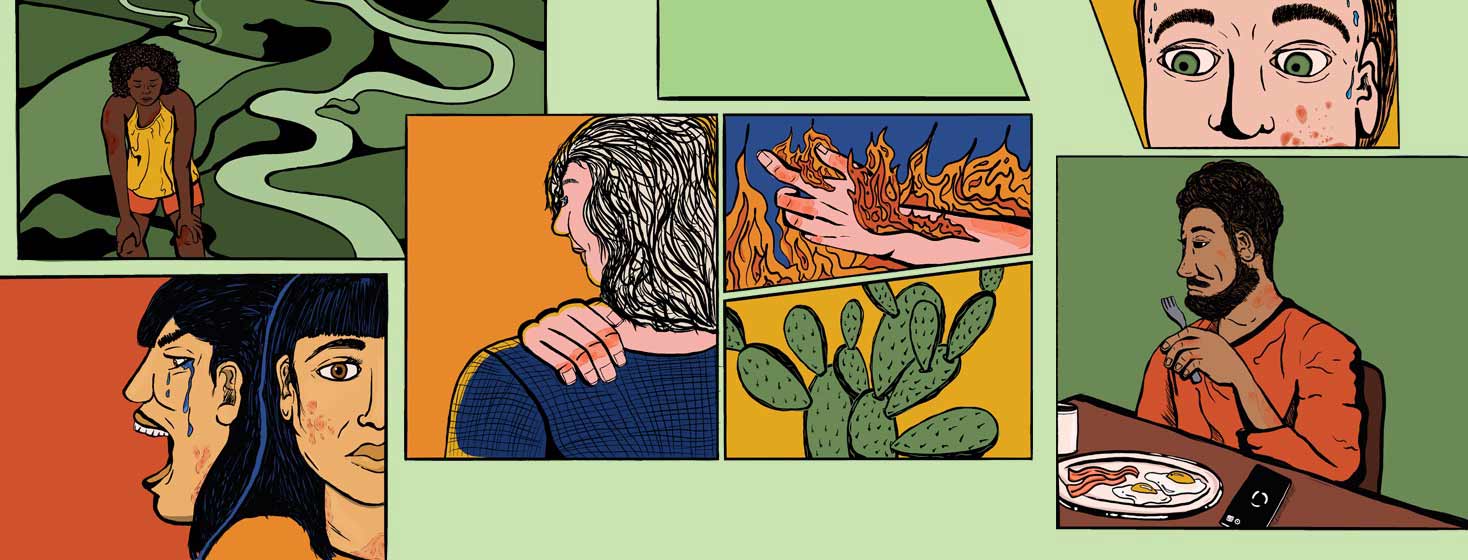The Reality of Psoriatic Arthritis
Psoriatic arthritis flares are inconsistent, and the pain is not always visible. From stiffness to fatigue, PsA comes with an array of symptoms that pose daily challenges.
So much more than just a few body aches
For those without PsA, its mental and physical toll can be difficult to understand. We asked community members to share what life with PsA is like for them. Press play to understand the reality of this painful condition.
Understanding in community
Sometimes there is no one who gets it quite like those who live with the condition. Cynthia shares the guilt that comes with canceling plans. Diane discusses pain so intense even getting out of bed can be a struggle.
Joel shares how PsA has affected his friendships. He also explains how changing his approach opened the door for more empathy and support. And Leanne shares tips on managing others' expectations while living with unexpected and inconsistent pain.
Support tips for loved ones
It is common for those with PsA to feel others do not take it seriously. When showing support for a loved one with the condition, consider the following:
Yes, PsA is connected to psoriasis. People with psoriasis can get it, but not all of them do. And sometimes arthritis shows up first. Psoriasis causes painful, scaly plaques of skin that can cover large parts of the body. Many people find it embarrassing, so keep that in mind when asking questions.
Please do not take a no personally. If your friend has a flare or suffering from fatigue, they might cancel plans. Often. Cut them some slack when this happens. They probably want to be there more than you know. Be flexible, patient, and understanding.
Skip the medical advice. That is what the doctor is for. After years of illness, psoriatic patients know their disease, its triggers, and which treatments work. Channel the urge to help by asking about the effects of current treatment.
Go ahead and offer help. It is okay to ask them if your loved one needs help. On a bad day, even scrambling an egg can be a huge chore. Even sitting and making a list of what needs to be done can be a big help. Small acts of support from friends and family mean an awful lot.

Join the conversation